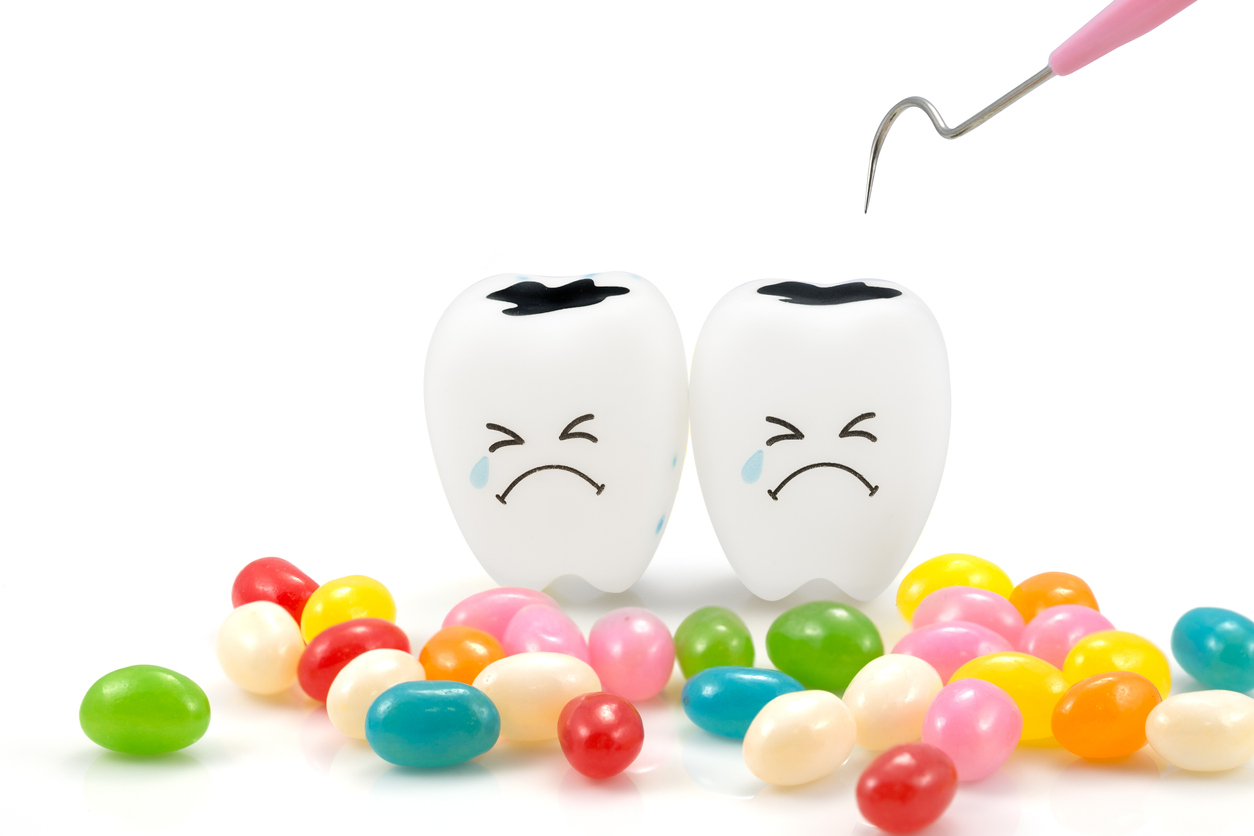There’s the age old saying, “Sugar will rot your teeth.” You probably heard it as a child, maybe repeated it to your children, and your dentist has probably warned you about sugar in regards to your dental health. Are you wondering exactly how sugar affects your teeth? There is actual science behind it that explains why sugar is bad for your teeth and how you can still enjoy sweets now and then and protect your teeth from the effects.
Sugar Feeds Bacteria
As you know, there are always bacteria that live in your mouth. The right amount and type of bacteria is good. But when certain bacteria get overpopulated, it can cause dental and oral health issues. How do bacteria get overpopulated in your mouth? When there is excess sugar available to feed them.
Bacteria Causes Gum Disease
Why does it matter if there is too much bacteria in your mouth? It causes tooth decay. The bacteria cling to the teeth and gums. When bacteria infect the gums, it results in gum disease, known as periodontal disease. Nearly half of American adults have some degree of gum disease, and a sugary diet is partly to blame.
Bacteria Causes Tooth Decay
When bacteria settles into pockets and grooves in the teeth, it eats away at the enamel, causing cavities. Cavities need to be filled as soon as they are detected to prevent them from getting deeper. Untreated cavities become places for more bacteria to gather and make the cavity worse, possibly reaching the inner soft pulp inside of the tooth and root. A cavity that has reached the soft pulp will require a root canal.
Got a Sweet Tooth? Here’s How to Protect Your Teeth
Of course it would be best to avoid sugar altogether. But if you want to be able to enjoy sweets every now and then, here’s what you can do to lessen the effect on your teeth.
- Brush your teeth. It is recommended that you brush your teeth twice a day on a regular basis. But if you want to get the best protection for your teeth, rinse well with water and then brush immediately after eating or drinking something sweet. If you can’t brush right away, you should definitely rinse your mouth well with water.
- Floss your teeth. You should floss your teeth once a day to remove plaque from in between your teeth and the pockets between your teeth and gums. If you have the opportunity to floss after eating a sweet treat, do so.
- Go to the dentist regularly. For patients without periodontal disease it is recommended that you go to the dentist for routine cleanings and exams every 6 months. Regular dental cleanings remove plaque from your teeth that gets missed when you brush. X-Rays and tooth examinations detect cavities in the early stages so that they can be filled before becoming a more serious problem. Patients with periodontal disease typically require cleanings every 3 to 4 months for optimum results.
- Avoid constant sipping and snacking. Another helpful tip for avoiding the negative effects of sugar is to limit the amount of time you spend consuming sugary foods and beverages. If you drink soda or sweet tea, don’t sip on it all day. Drink it in one sitting and then rinse well with water. Don’t suck on hard candy or munch on candy pieces for hours at a time. Eat something sweet in one sitting.
Now that you know how sugar affects your teeth, you can take the necessary steps to prevent the negative effects like cavities and gum disease.
Preventive Care at Creekview Dental
An important part of maintaining your dental health is going to the dentist for preventive care at the recommended interval. Your dentist and hygienist will work with you to determine the ideal schedule for keeping your teeth and gums clean and healthy and for early detection of cavities and periodontal disease. Creekview Dental provides comprehensive dental services including preventive and restorative care. If sugar consumption is affecting your dental health, we can help you develop healthier habits to protect your teeth.
Call 651-738-8204 or contact us to schedule an appointment. We look forward to helping you maintain your dental health.


